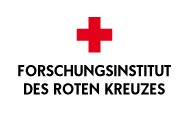About
A growing number of participants in vocational trainings are migrants. Teachers however, are not prepared and ill equipped to teach both migrants and non-migrants (natives) in the same classroom. Furthermore, this factor negatively influences both course-participants and the teachers.
Teachers are often over-challenged with this heterogeneity and different needs which are difficult to satisfy. Their teaching methods do not fit in the same way as before, new ways are not known or often due to a lack of resources not taken. Challenges grow without solution models, networks or possibilities of reflection.
For migrants a number of problems originate in the classroom. Pace of speech, used terms, type of classes and materials are not adapted to the needs of migrants which in turn aggravates the accomplishment of courses. In general, migrants often experience contempt of their competences and their accomplishments. This factor is especially prevalent in the context of language. Mistakes in speaking and writing are often interpreted as impressions of less competence. European education system often react to these challenges with compensation such as: special support programmes, through differentiating the education offers and also often with the phenomenon of exclusion.
Although it is recognised that special offers are very important alternatives exist. One such alternative is to adapt teaching methods to the needs of migrants. Sensitive teaching and consideration of the demands of course participants brings out the whole potential of the individual, improves cultural understanding and even has an integrative aspect. Regarding all the impacts of language can be seen as a very important contribution to the appreciation and inclusion of migrants in society.
The Year 2008 was the Year of Intercultural Dialogue. By following this strategy the New View project focuses on the question of adult teaching which is until now rarely recognized as an important integration issue.
Within this context New View aims to identify the particular challenges in teaching both migrants and non-migrants in the same classroom and to develop New Views to handle these challenges. More concretely the project aims to:
- Explore the specific challenges faced by teachers who teach mixed groups (migrants and non-migrants) and the challenges faced by course-participants attending these courses. Additionally integrative and conducive issues will be addressed.
- Adapt existing and develop new teaching methods to integrate the demand of intercultural education.
- Define methodical-didactical competences and skills which describe the required profile of teachers in multicultural adult education.
- Sensitising the impact related to the issue of language. As integration is deeply correlated with language skills, migrants who are taught in a language sensitive manner are better educated and can improve their services and cultural communication skills. As a consequence this factor has sustainable influences of accessing the labour market.
New View is a 24-month project being undertaken by partners from Austria, Denmark, German, Hungary and Greece. The project is funded by the European Commission - DG Education and Cultures – Lifelong Learning Program Sub-programme: GRUNDTVIG

